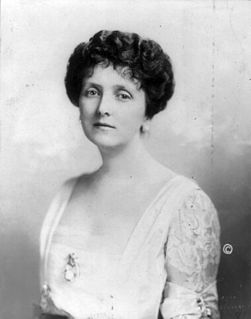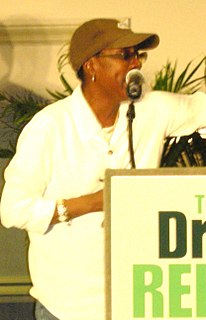A Quote by William Makepeace Thackeray
What is it to be a gentleman? Is it to be honest, to be gentle, to be generous, to be brave, to be wise, and, possessing all these qualities, to exercise them in the most graceful outward manner? Ought a gentleman to be a loyal son, a true husband, an honest father? Ought his life to be decent, his bills to be paid, his taste to be high and elegant, his aims in life lofty and noble?
Related Quotes
Once in his life, a man ought to concentrate his mind upon the remembered earth, I believe. He ought to give himself up to a particular landscape in his experience, to look at it from as many angles as he can, to wonder about it, to dwell upon it. He ought to imagine that he touches it with his hands at every season and listens to the sounds that are made upon it. He ought to imagine the creatures there and all the faintest motions of the wind. He ought to recollect the glare of noon and all the colors of the dawn and dusk.
Sir Walter, being strangely surprised and put out of his countenance at so great a table, gives his son a damned blow over the face. His son, as rude as he was, would not strike his father, but strikes over the face the gentleman that sat next to him and said, "Box about: twill come to my father anon."
When the father dies, he writes, the son becomes his own father and his own son. He looks at is son and sees himself in the face of the boy. He imagines what the boy sees when he looks at him and finds himself becoming his own father. Inexplicably, he is moved by this. It is not just the sight of the boy that moves him, not even the thought of standing inside his father, but what he sees in the boy of his own vanished past. It is a nostalgia for his own life that he feels, perhaps, a memory of his own boyhood as a son to his father.
Addison writes with the ease of a gentleman. His readers fancy that a wise and accomplished companion is talking to them; so thathe insinuates his sentiments and taste into their minds by an imperceptible influence. Johnson writes like a teacher. He dictates to his readers as if from an academical chair. They attend with awe and admiration; and his precepts are impressed upon them by his commanding eloquence. Addison's style, like a light wine, pleases everybody from the first. Johnson's, like a liquor of more body, seems too strong at first, but, by degrees, is highly relished.
It is a grand old name, that of gentleman, and has been recognized as a rank and power in all stages of society. To possess this character is a dignity of itself, commanding the instinctive homage of every generous mind, and those who will not bow to titular rank will yet do homage to the gentleman. His qualities depend not upon fashion or manners, but upon moral worth; not on personal possessions, but on personal qualities.
In the first place, the government ought not to be invested with power to control the affections, any more than the consciences of citizens. A man has at least as good a right to choose his wife, as he has to choose his religion. His taste may not suit his neighbors; but so long as his deportment is correct, they have no right to interfere with his concerns.
In his book Stand Ye In Holy Places, President Harold B. Lee wrote that one is converted when his eyes see what he ought to see, his ears hear what he ought to hear and his heart understands what he ought to understand. "And what he ought to see, hear and understand is truth-eternal truth-and then practice it. That is conversion," he wrote.




































